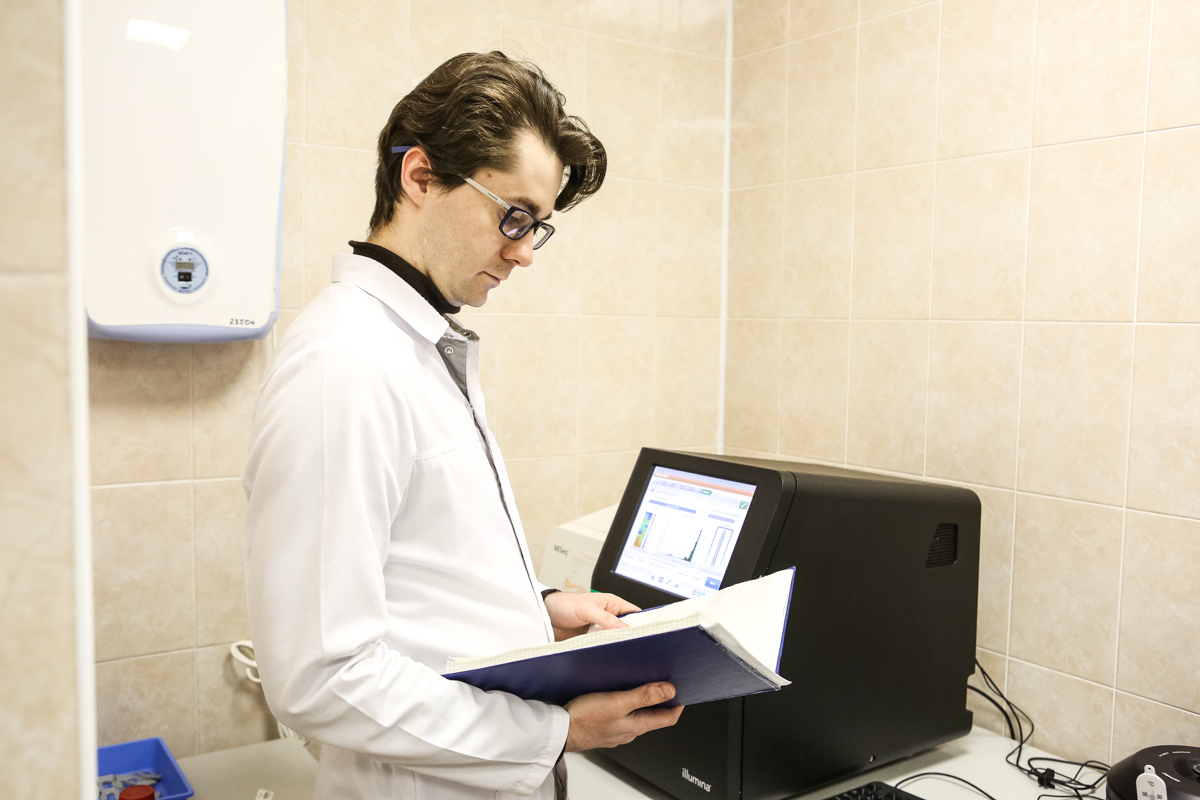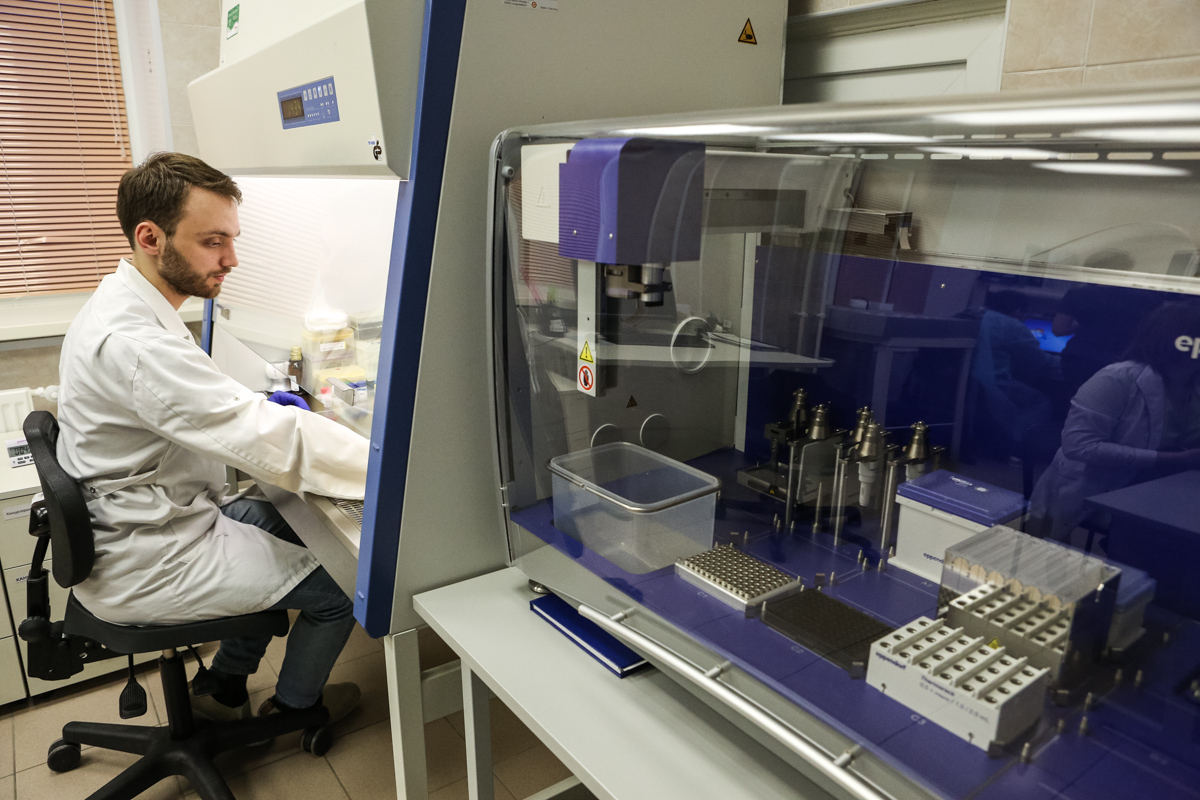From science lab to clinic: St Petersburg University scientists tell Alexander Beglov how big science helps ordinary St Petersburg citizens
On the Day of Russian science, the acting Governor of St Petersburg Alexander Beglov and the Rector of St Petersburg University Nikolay Kropachev paid a visit to City Hospital No 40. This is where complex scientific research is being conducted by St Petersburg University scientists. They told Alexander Beglov about their latest scientific developments applied in the lives of ordinary St Petersburg citizens.
The meeting took place in the genetics laboratory of City Hospital No 40. Since 2013, it has been headed by Oleg Glotov, Candidate of Biology, leading researcher in the Laboratory of Genomic and Proteomic Research at the Institute of Translational Biomedicine, St Petersburg University. There is a staff of 20 researchers including one doctor and five candidates of science. It is worth mentioning that it is possible to perform in the laboratory up to a thousand studies per day to help diagnose and solve various health problems of our citizens.
“Today St Petersburg University is cooperating with a great number of both federal and city hospitals,” said Nikolay Kropachev to the City Governor. “We have built a special relationship with City Hospital No 40, where fundamental research is being carried out and translated into healthcare to the people in need to prevent, diagnose and treat a disease.”
It is important to realise that the University today is not only an educational establishment but also a research entity. Education always flourishes where people work hard to create genuine research and give way to progress.
The Rector of St Petersburg University Nikolay Kropachev
One striking example of successful cooperation is a unique case of assistance to a family with a rare hereditary pathology. The team comprised our university geneticists, the hospital researchers, their counterparts from the Medico-Genetic Diagnostic Centre of St Petersburg and the Research Institute of Obstetrics, Gynaecology and Reproductology named after D.O. Ott. They succeeded in conducting a complex multi-stage molecular-genetic and clinical DNA diagnosis of the family within a short time. They found out that the mother, father and their child possess PHGDH gene mutation, which is associated with two diseases: Neu-Laxova syndrome and phosphoglycerate dehydrogenase deficiency. These results helped the family plan pregnancy and give birth to a healthy baby.
Today we are engaged in translational work, in which fundamental research is being conducted by our colleagues in research laboratories – by physicists, chemists, mathematicians and specialists in bio information to be later translated into real medical help – from the laboratory table to the patient’s bed.
Professor Raul Gainetdinov, the Director of the Institute of Translational Biomedicine, St Petersburg University
The main task that researchers face today is to introduce the fundamental scientific research of St Petersburg University scientists into the daily work of hospitals and clinics. These include diagnostic tools, medical procedures, medications and other areas of practical healthcare.
Among the latest projects it is necessary to mention: the neuroprostheses for restoring motor function in spinal injuries; the study of low toxic agents for the treatment of resistant tuberculosis; simulation analysis of chronic stress based on the study of Zebra Danio fish; and new ways of clinical diagnosis of hereditary forms of Alzheimer’s disease. There are also many other innovative projects.
During the meeting Alexander Beglov handed the badge of merit “For Services to St Petersburg” to Nikolay Kropachev, and congratulated the university students and university staff on the 295th anniversary of St Petersburg University.



